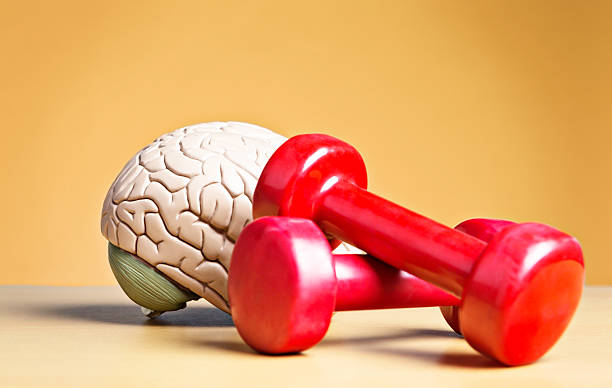We often associate exercise with physical benefits—like weight loss, increased strength, and improved endurance. But its impact on the brain is just as powerful. Regular physical activity enhances memory, boosts concentration, sharpens thinking skills, and even supports emotional well-being.
Here’s how consistent exercise can supercharge your brain function:
Contents
1. Boosts Memory and Learning
Exercise increases the production of brain-derived neurotrophic factor (BDNF), a protein that supports the growth of new brain cells and strengthens existing neural connections.
- Impact: Improved long-term memory, faster learning, and better retention.
- Best exercises: Aerobic activities like running, swimming, and cycling.
2. Enhances Concentration and Focus
Physical activity improves blood flow to the brain, delivering oxygen and nutrients essential for cognitive performance.
- Result: Sharper focus, better attention span, and enhanced productivity.
- Best practices: Even short bursts of exercise (like 10-minute walks) can boost concentration for hours.
3. Stimulates Creativity and Problem-Solving
Studies show that light to moderate exercise helps unlock creative thinking and improves problem-solving abilities.
- Why it works: Movement reduces mental blocks and enhances cognitive flexibility.
- Try this: Go for a walk or do light stretching before brainstorming or planning sessions.
4. Improves Mood and Reduces Anxiety
Exercise triggers the release of endorphins, serotonin, and dopamine—neurotransmitters that elevate mood and reduce anxiety.
- Benefits: Lower stress levels, reduced symptoms of depression, and improved emotional resilience.
- Great options: Yoga, dancing, brisk walking, or team sports.
5. Slows Cognitive Decline
Regular physical activity is linked to a lower risk of neurodegenerative diseases like Alzheimer’s and dementia.
- How: Exercise supports hippocampus health, the brain region responsible for memory and learning.
- Ideal routine: 150 minutes of moderate aerobic activity per week, combined with strength training.
6. Enhances Sleep Quality
Good sleep is crucial for brain repair and memory consolidation. Regular exercise helps regulate your sleep cycle and reduces insomnia.
- Effect: Better concentration, reduced fatigue, and enhanced problem-solving.
- Tip: Avoid intense workouts right before bedtime for optimal results.
7. Supports Mental Endurance
Exercise improves your ability to stay mentally strong under pressure. Just as physical stamina grows with training, so does mental resilience.
- Why it matters: Helps with decision-making, emotional control, and persistence in tough tasks.
Final Thoughts
You don’t need to become a marathon runner to reap the brain benefits of exercise. Just 30 minutes of moderate activity most days of the week can significantly enhance your mental clarity, emotional balance, and cognitive longevity.
Start small, stay consistent, and remember—your brain is just as important to train as your body.




